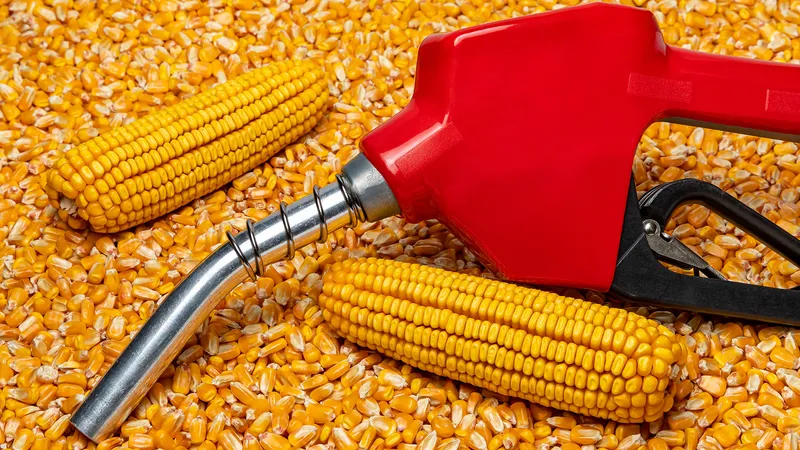Syllabus:
GS- 3: Infrastructure: Energy; Conservation and Environmental Impact Assessment.
Context:
Recently, biofuel production from maize has ignited a Fuel vs. Feed debate.
More on the News

- Ethanol is a renewable fuel made from various plant materials collectively known as biomass. Ethanol-based biofuels are seen as cleaner alternatives to fossil fuels due to their lower carbon emissions.
- They are produced from grains, sugarcane, rotten potatoes, and various agricultural or industrial wastes.
- Ethanol made directly from food crops like rice, maize, or sugarcane is called 1st Generation (1G) ethanol, while ethanol from crop residues, non-food plants, and waste materials is known as 2nd Generation (2G) ethanol.
Use of Maize for Biofuel Production

- Maize, a staple food and a vital component in animal feed, is now being increasingly diverted for ethanol production.
- With sugarcane-based ethanol reaching its saturation point, maize is emerging as the next best alternative.
- However, this shift is causing concerns among stakeholders in the poultry and dairy industries, who fear a surge in feed prices due to reduced availability.
- India has shifted from being a major maize exporter to a net importer, primarily due to the increased demand for corn-based ethanol production.
- Till 2021-22, India’s maize output, at 32-33 million tonnes (mt), exceeded domestic demand of around 28 mt. It even left a surplus for exports, which touched 3.7 mt in 2021-22.
- In 2023, India imported $8.07 million worth of corn, primarily from South Africa, the United States, and Argentina.
Need for Biofuels
- Energy Security: By producing biofuels locally, India aims to reduce its reliance on foreign oil and gas, enhancing its energy security.
- Environmental Benefits: Biofuels, especially ethanol, produce lower greenhouse gas emissions compared to fossil fuels, helping India in its commitment to mitigating climate change.
- Reduction in Air Pollution: Reduction in Air Pollution: Biofuels, when blended with conventional fuels, can help reduce air pollution, which is a major concern in urban and industrial areas in India.
- Diversification of Fuel Sources: Alternative fuels like biofuels help diversify the fuel mix, ensuring a stable energy supply and resilience to global energy price fluctuations.
Mains Question:
Q. Ethanol blending is crucial for India’s energy security and environmental goals. However, increasing reliance on food crops for ethanol production raises concerns about food security. Critically examine this trade-off and suggest measures to achieve a balance between energy needs and food availability.

